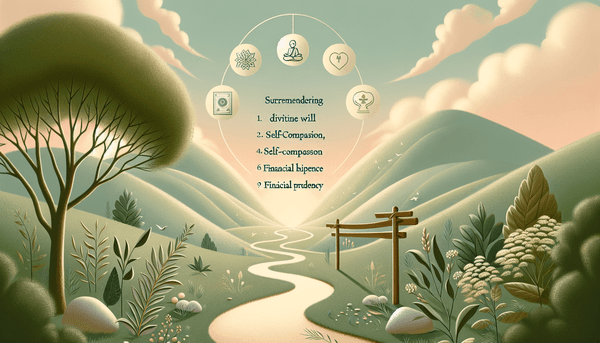The Power of the Tongue and Its Consequences
The book of Proverbs is a treasure trove of practical wisdom, and one of its most striking messages comes from Proverbs 18:21: 'Death and life are in the power of the tongue, and those who love it will eat its fruits' (ESV). This scripture emphasizes the potent impact of our words, which can either build up or destroy. The tongue holds a paradoxical power, capable of blessing and cursing, and this duality demands careful stewardship. James 3:5-6 compares the tongue to a small flame that can set a great forest ablaze, underscoring the need for mindful speech. Moreover, Ephesians 4:29 urges us to use words that give grace to those who hear. As we seek to navigate the complexities of life, let us remember the wise counsel of Matthew 12:36-37, which reminds us that we will be held accountable for every idle word we speak. In this light, our daily conversations become opportunities to affirm life, speak blessings, and embody the healing wisdom of Proverbs 12:18, which contrasts the rash words that are like sword thrusts with the tongue of the wise, which brings healing.
The Mark of the Beast and Its Spiritual Ramifications
The book of Revelation presents us with vivid imagery and dramatic prophetic visions, among which is the notorious mark of the beast. In Revelation 14:9-11, we are warned of the dire consequences of worshiping the beast and receiving its mark. This act represents a fundamental choice between divine allegiance and succumbing to worldly powers. It signifies a rejection of God's authority and a deliberate embrace of values that stand in stark opposition to divine truth. The gravity of this choice is not to be underestimated, for it entails not only a physical mark but a spiritual one, leading to eternal separation from God's love and the torment of fire and sulfur. The Apostle John, in Revelation 13:16-17, portrays the mark as a means of economic and social control, further illustrating the depth of compromise it entails. As Christians, we are called to vigilance and faithfulness, resisting the allure of such deceptions, as 2 Thessalonians 2:9-12 warns us of the coming lawless one, whose coming is marked by satanic power and false signs. In this cosmic battle between good and evil, 1 John 2:18 exhorts us to remain steadfast in the last hour, rejecting the antichrist and holding firm to the eternal truth.
Divine Assurance in Times of Need
In moments of distress and uncertainty, the scriptures offer us a message of divine assurance that resonates with unwavering hope. Psalm 46:1 declares, 'God is our refuge and strength, a very present help in trouble' (ESV), reminding us that the Creator is not a distant deity but an ever-present source of support. This assurance is echoed in Isaiah 41:10, where God encourages us to fear not, for He is with us, offering His righteous right hand as a symbol of strength and protection. In the New Testament, Philippians 4:6-7 invites us to present our anxieties to God through prayer and supplication, with the promise of a peace that surpasses all understanding, a topic further explored in a related discussion on the role of community in mental health. As we seek comfort and guidance, Matthew 7:7-8 reassures us that those who ask shall receive, and those who seek shall find. This divine promise is not just a fleeting sentiment but a cornerstone of faith, as seen in Jeremiah 29:11, where God affirms His plans for our welfare and a future filled with hope. With such assurances, we can navigate life's challenges with confidence, knowing that we are under the watchful eye and loving care of the Almighty.
FAQ
Q: What does Proverbs 18:21 mean in depth?
A: Proverbs 18:21 highlights the profound impact of our words, suggesting that they have the power to bring life or death. This verse encourages us to use our words wisely and with love, knowing that they can shape the world around us and bring about positive or negative consequences.
Q: What happens when you take the mark of the beast?
A: Taking the mark of the beast, as described in the book of Revelation, is a grave spiritual decision. It is associated with worshiping the beast and its image, symbolizing a deliberate choice to align with evil and to reject God. This act leads to spiritual separation and dire eternal consequences.
Q: Why is it bad to take the mark of the beast?
A: Taking the mark of the beast is considered a rejection of God and an alignment with the beast's opposition to divine truth. Revelation warns of severe eternal punishment for those who take the mark, indicating a spiritual downfall and separation from God's salvation.
Q: Where does it say your thoughts and self-talk become your actions?
A: While the Bible does not contain a verse that explicitly states 'your thoughts and self-talk become your actions,' the idea is reflected in scriptures that emphasize the importance of guarding one's heart and mind, such as Proverbs 4:23 and Philippians 4:8, which suggest that what we think and believe can influence our behavior and life choices.






